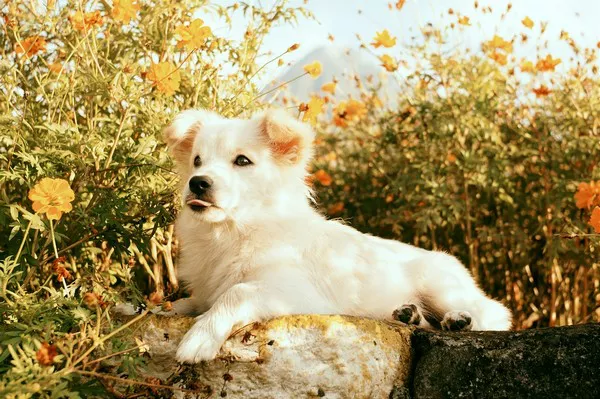While the image of a fluffy bunny munching on colorful pellets might be ingrained in our minds, the reality of wild rabbit diets is far more nuanced. While commercially available rabbit pellets are formulated to meet the nutritional needs of domestic rabbits, their suitability for their wild counterparts is a complex question with no straightforward answer.
To understand whether wild rabbits can or will eat rabbit pellets, we must first delve into the distinct dietary needs of these two rabbit populations.
Wild vs Domestic: A Tale of Two Diets
The digestive systems of wild and domestic rabbits, though similar in structure, have adapted to vastly different dietary landscapes.
Wild rabbits are herbivores that thrive on a diverse, high-fiber, low-calorie diet consisting primarily of grasses, wildflowers, herbs, and leafy greens. This natural diet provides them with the necessary fiber for optimal gut health and dental wear, while the low caloric content aligns with their active lifestyle and energy expenditure.
Domestic rabbits, on the other hand, often lead less active lives and are typically provided with commercially formulated rabbit pellets. These pellets are designed to be nutritionally complete, offering a concentrated source of energy, protein, vitamins, and minerals. However, they often contain higher levels of carbohydrates and fats compared to the natural diet of wild rabbits.
The Dilemma of Pellets for Wild Rabbits:
Given the dietary discrepancies between wild and domestic rabbits, offering pellets to wild rabbits presents several potential concerns:
Nutritional Imbalance: The high caloric content of pellets can lead to weight gain and obesity in wild rabbits, who are adapted to a low-calorie diet. Additionally, the lower fiber content in pellets may not adequately support their digestive health and dental wear.
Digestive Upset: Introducing a new food source like pellets can disrupt the delicate gut microbiome of wild rabbits, potentially leading to digestive issues like bloating and diarrhea.
Dependency and Loss of Foraging Skills: Wild rabbits rely on their innate foraging skills to locate and select appropriate food sources. Offering readily available pellets may discourage them from foraging, potentially impacting their ability to survive in the wild.
When Pellets Might be Considered:
While pellets are not generally recommended for wild rabbits, there may be specific scenarios where they can be used as a temporary supplemental food source under the guidance of wildlife rehabilitators or veterinarians. Such situations might include:
Injured or Orphaned Rabbits: Young or injured wild rabbits in rehabilitation may benefit from the easily digestible nutrients in pellets until they are able to transition to a natural diet.
Extreme Weather Conditions: During harsh winters or droughts, when natural food sources are scarce, pellets can be offered as a temporary measure to prevent starvation.
Alternatives to Pellets:
If you encounter a wild rabbit and are concerned about its food intake, offering fresh, wild-appropriate foods is a safer and healthier alternative to pellets. Some suitable options include:
Grasses: Timothy hay, orchard grass, brome grass
Leafy Greens: Dandelion greens, clover, plantain leaves, kale
Herbs: Basil, parsley, cilantro
See Also:What Is Pellet Free Rabbit Diet: A Comprehensive Guide
Wildflowers: Dandelions, clovers, daisies
Remember: It’s crucial to consult with a wildlife professional before offering any food to wild rabbits, as their specific needs may vary depending on their age, health, and local environment.
Promoting a Healthy Ecosystem:
Ultimately, the best way to ensure the well-being of wild rabbits is to support a healthy ecosystem that provides them with their natural food sources. This includes:
Protecting natural habitats: Preserving meadows, grasslands, and other natural areas where wild rabbits thrive.
Planting native species: Encouraging the growth of native grasses, wildflowers, and herbs that wild rabbits naturally consume.
Avoiding the use of pesticides and herbicides: These chemicals can harm wild rabbits and their food sources.
By understanding the dietary needs of wild rabbits and respecting their natural foraging behaviors, we can help ensure their continued survival and well-being in the wild.
Related Topics:
























